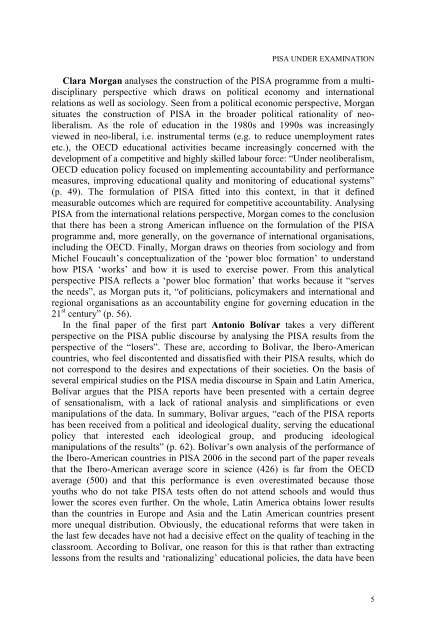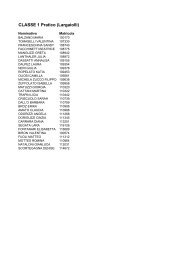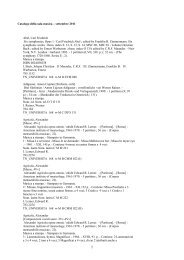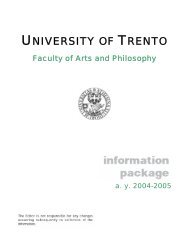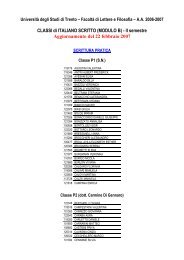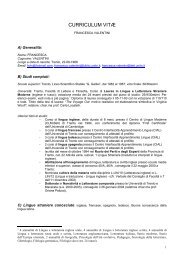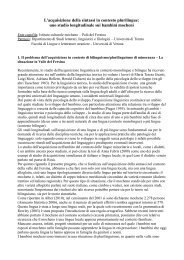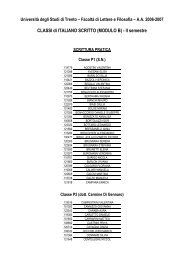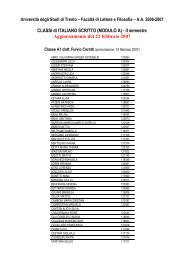PISA Under Examination - Comparative Education Society in ...
PISA Under Examination - Comparative Education Society in ...
PISA Under Examination - Comparative Education Society in ...
You also want an ePaper? Increase the reach of your titles
YUMPU automatically turns print PDFs into web optimized ePapers that Google loves.
<strong>PISA</strong> UNDER EXAMINATION<br />
Clara Morgan analyses the construction of the <strong>PISA</strong> programme from a multidiscipl<strong>in</strong>ary<br />
perspective which draws on political economy and <strong>in</strong>ternational<br />
relations as well as sociology. Seen from a political economic perspective, Morgan<br />
situates the construction of <strong>PISA</strong> <strong>in</strong> the broader political rationality of neoliberalism.<br />
As the role of education <strong>in</strong> the 1980s and 1990s was <strong>in</strong>creas<strong>in</strong>gly<br />
viewed <strong>in</strong> neo-liberal, i.e. <strong>in</strong>strumental terms (e.g. to reduce unemployment rates<br />
etc.), the OECD educational activities became <strong>in</strong>creas<strong>in</strong>gly concerned with the<br />
development of a competitive and highly skilled labour force: “<strong>Under</strong> neoliberalism,<br />
OECD education policy focused on implement<strong>in</strong>g accountability and performance<br />
measures, improv<strong>in</strong>g educational quality and monitor<strong>in</strong>g of educational systems”<br />
(p. 49). The formulation of <strong>PISA</strong> fitted <strong>in</strong>to this context, <strong>in</strong> that it def<strong>in</strong>ed<br />
measurable outcomes which are required for competitive accountability. Analys<strong>in</strong>g<br />
<strong>PISA</strong> from the <strong>in</strong>ternational relations perspective, Morgan comes to the conclusion<br />
that there has been a strong American <strong>in</strong>fluence on the formulation of the <strong>PISA</strong><br />
programme and, more generally, on the governance of <strong>in</strong>ternational organisations,<br />
<strong>in</strong>clud<strong>in</strong>g the OECD. F<strong>in</strong>ally, Morgan draws on theories from sociology and from<br />
Michel Foucault’s conceptualization of the ‘power bloc formation’ to understand<br />
how <strong>PISA</strong> ‘works’ and how it is used to exercise power. From this analytical<br />
perspective <strong>PISA</strong> reflects a ‘power bloc formation’ that works because it “serves<br />
the needs”, as Morgan puts it, “of politicians, policymakers and <strong>in</strong>ternational and<br />
regional organisations as an accountability eng<strong>in</strong>e for govern<strong>in</strong>g education <strong>in</strong> the<br />
21 st century” (p. 56).<br />
In the f<strong>in</strong>al paper of the first part Antonio Bolívar takes a very different<br />
perspective on the <strong>PISA</strong> public discourse by analys<strong>in</strong>g the <strong>PISA</strong> results from the<br />
perspective of the “losers”. These are, accord<strong>in</strong>g to Bolívar, the Ibero-American<br />
countries, who feel discontented and dissatisfied with their <strong>PISA</strong> results, which do<br />
not correspond to the desires and expectations of their societies. On the basis of<br />
several empirical studies on the <strong>PISA</strong> media discourse <strong>in</strong> Spa<strong>in</strong> and Lat<strong>in</strong> America,<br />
Bolívar argues that the <strong>PISA</strong> reports have been presented with a certa<strong>in</strong> degree<br />
of sensationalism, with a lack of rational analysis and simplifications or even<br />
manipulations of the data. In summary, Bolivar argues, “each of the <strong>PISA</strong> reports<br />
has been received from a political and ideological duality, serv<strong>in</strong>g the educational<br />
policy that <strong>in</strong>terested each ideological group, and produc<strong>in</strong>g ideological<br />
manipulations of the results” (p. 62). Bolívar’s own analysis of the performance of<br />
the Ibero-American countries <strong>in</strong> <strong>PISA</strong> 2006 <strong>in</strong> the second part of the paper reveals<br />
that the Ibero-American average score <strong>in</strong> science (426) is far from the OECD<br />
average (500) and that this performance is even overestimated because those<br />
youths who do not take <strong>PISA</strong> tests often do not attend schools and would thus<br />
lower the scores even further. On the whole, Lat<strong>in</strong> America obta<strong>in</strong>s lower results<br />
than the countries <strong>in</strong> Europe and Asia and the Lat<strong>in</strong> American countries present<br />
more unequal distribution. Obviously, the educational reforms that were taken <strong>in</strong><br />
the last few decades have not had a decisive effect on the quality of teach<strong>in</strong>g <strong>in</strong> the<br />
classroom. Accord<strong>in</strong>g to Bolívar, one reason for this is that rather than extract<strong>in</strong>g<br />
lessons from the results and ‘rationaliz<strong>in</strong>g’ educational policies, the data have been<br />
5


